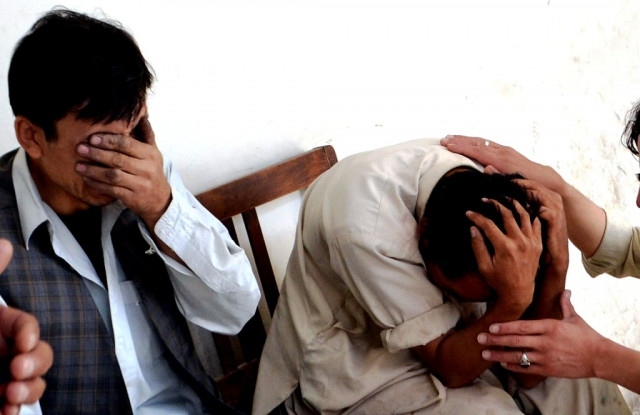Dangerous journey
Many Hazaras want to seek asylum in Australia, at whatever the cost; 300 Hazara have died trying to get there.

A file photo of mourning members of the Hazara community. PHOTO: AFP/FILE
In the above case, the suspects confessed that 152 people were aboard a ship that could only accommodate 60. This is always the case the world over with people escaping poverty or persecution in their home countries. The real tragedy is that this will not deter other Hazaras from trying to attempt escaping gruesome conditions. This year has seen eight attacks against the Hazaras in which over 200 have been killed. Many Hazaras want to seek asylum in Australia, at whatever the cost; 300 Hazara have died trying to get there, according to an Australian paper quoting a Hazara website. The blame falls squarely on the state for failing to provide basic security to citizens who then resort to whatever means they can acquire — through traffickers, for example — for a better life that should be made available in their own country. Pakistan has failed the Hazaras so far but has an opportunity to turn things around should its next government choose to do so.
Published in The Express Tribune, April 13th, 2013.















COMMENTS
Comments are moderated and generally will be posted if they are on-topic and not abusive.
For more information, please see our Comments FAQ